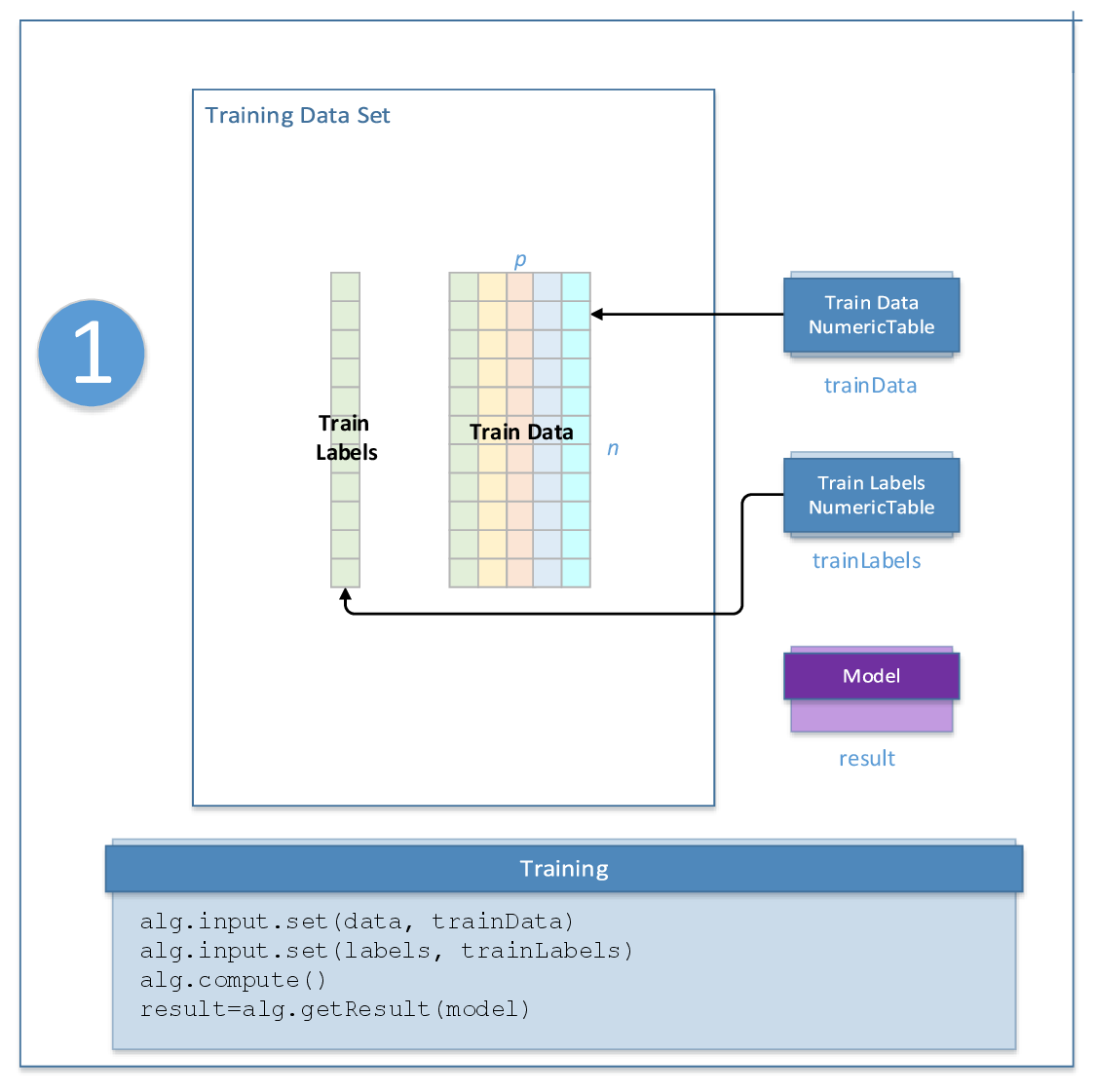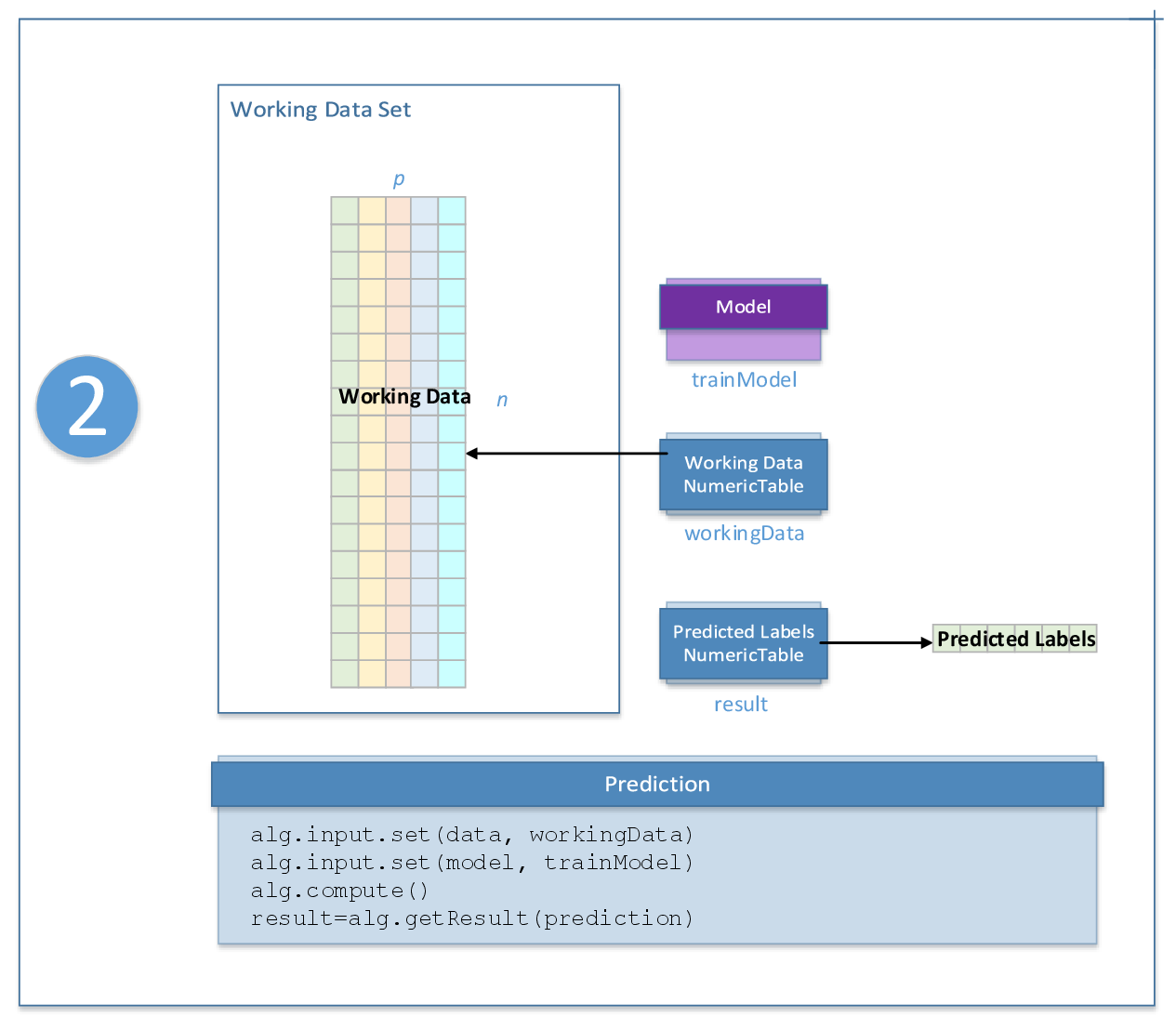Intel® oneAPI Data Analytics Library Developer Guide and Reference
A newer version of this document is available. Customers should click here to go to the newest version.
Classification Usage Model
A typical workflow for classification methods includes training and prediction, as explained below.
Algorithm-Specific Parameters
The parameters used by classification algorithms at each stage depend on a specific algorithm. For a list of these parameters, refer to the description of an appropriate classification algorithm.
Training Stage

At the training stage, classification algorithms accept the input described below. Pass the Input ID as a parameter to the methods that provide input for your algorithm. For more details, see Algorithms.
Input ID |
Input |
|---|---|
data |
Pointer to the |
weights |
Weights of the observations in the training data set. Argument is optional, but it is required by the selected algorithms. |
labels |
Pointer to the This table can be an object of any class derived from NumericTable except PackedSymmetricMatrix and PackedTriangularMatrix. |
At the training stage, classification algorithms calculate the result described below. Pass the Result ID as a parameter to the methods that access the results of your algorithm. For more details, see Algorithms.
Result ID |
Result |
|---|---|
model |
Pointer to the classification model being trained. The result can only be an object of the Model class. |
Prediction Stage

At the prediction stage, classification algorithms accept the input described below. Pass the Input ID as a parameter to the methods that provide input for your algorithm. For more details, see Algorithms.
Input ID |
Input |
|---|---|
data |
Pointer to the |
model |
Pointer to the trained classification model. This input can only be an object of the Model class. |
At the prediction stage, classification algorithms calculate the result described below. Pass the Result ID as a parameter to the methods that access the results of your algorithm. For more details, see Algorithms.
Result ID |
Result |
|---|---|
prediction |
Pointer to the
NOTE:
By default, this table is an object of the HomogenNumericTable class, but you can define it as an object of any class derived from NumericTable except PackedSymmetricMatrix and PackedTriangularMatrix.
|
probabilities |
A numeric table of size |
logProbabilities |
A numeric table of size
NOTE:
By default, this table is an object of the HomogenNumericTable class, but you can define it as an object of any class derived from NumericTable except PackedSymmetricMatrix, PackedTriangularMatrix, CSRNumericTable.
|
 numeric table with the training data set. This table can be an object of any class derived from NumericTable.
numeric table with the training data set. This table can be an object of any class derived from NumericTable. numeric table with class labels.
numeric table with class labels. , containing probabilities of classes computed when the computeClassProbabilities option is enabled. This result table is available for selected algorithms, see corresponding algorithm documentation for details.
, containing probabilities of classes computed when the computeClassProbabilities option is enabled. This result table is available for selected algorithms, see corresponding algorithm documentation for details.